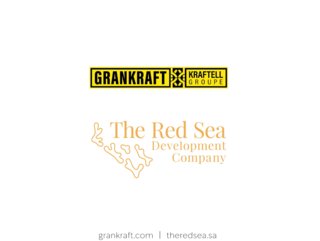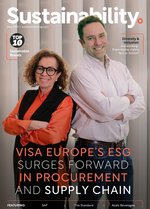Pushing design and manufacturing boundaries in The Red Sea

Most engineering and manufacturing companies would expect the brief for building a showpiece attraction within a world-leading ocean-based tourism development to be challenging.
But the demands set by The Red Sea Development Company to Grankraft Industries, for the development of the futuristic, hyper-luxury Sheybarah Hotel, have pushed the architectural and construction boundaries to new limits.
Grankraft was awarded a ‘design and build’ contract for the main OSM package including but not limited to structure and cladding, and tasked with creating +70 futuristic ‘floating bubble’ overwater villas and main public hotel facilities with seamless polished stainless steel surfaces that reflect the environment; if that doesn’t sound taxing enough, they must be built with minimal disturbance to the coral-rich environment.
CEO George Jose said the Sheybarah project has tested Grankraft – itself no stranger to arresting developments – like few others, involving R&D, engineering, manufacturers, assemblers, welders, surface finishers and logistics.
The company, which started with four employees in 2000, now employs 500, and another 200 will come on board during peak production – likely to be around September – to complete the project.
“The Red Sea Development Company’s vision is like nothing I’ve ever seen – and I’ve travelled quite a bit – to participate in a project of this relevance , is a challenge and a great opportunity. We love the design, and can’t wait to see all the villas installed and ‘floating’ in the ocean.”
Alongside having to completely re-tool their manufacturing facilities, Grankraft acquired +10 bespoke machines and production kit, as well as set to work creating an off-site infrastructure to meet the unique OSM and environmental demands of this unique project.
Three elements have been central to the project from the outset:; the off site construction of the development, the planning and anticipation of the transport and installation logistics, and the design factors surrounding the unique structure; and the notions of manufacturing, assembly and installation, particularly involving the seamless mirrored finish stainless steel skin shell.
“We set up a stringent design planning methodology, and different loading and thermal conditions for both main structure and shell analysis,” explains Yatindra Mudbidri, Director Techno Commercial at Grankraft. “We didn’t just only try them out with specialised structural software but built physical models to be tested and prove the solutions work.”
The unique Red Sea site environment end ecology remains integral, and sustainability remains a core focus, for the entire Red Sea Project. The hotel, designed by Killa Design in Dubai, is aiming for a LEED-Platinum accreditation.
“The primary aim is not to create a carbon footprint, and use sustainable and recyclable materials,” said Mudbidri, adding that it has tied up with Finland stainless steel company Outokumpu, which makes around 88% of its steel from recycled materials. “We are buying the steel with a high content of recyclable components and following ISO and LEED standards as a project priority during the planning and design stages and for all on/off site construction activities







